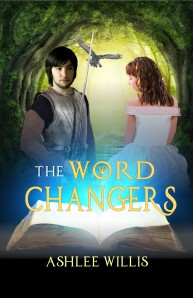This is it. It's almost sad, because I've really enjoyed this challenge. Thank you,
Anne-girl, for a wonderful June Crusade.
Now, for those of you who haven't been around, I do like a good fantasy. As a younger girl I read Andrew Lang, the Brothers Grimm, Hans Christian Andersen, and any other fairy tales I could get my hands on. And, as most of you know, my very dear friend
Kiri Liz has been re-writing fairy tales without magic. Her first completed one is
The Secret of the Hazel Tree, which is a Cinderella retelling, and it is so absoballylutely incredible that I can't even begin to explain how wonderful and amazingiferously splendid this book is. She's also working on some other stories, but I'm telling you, she'll be hard-pressed to come up with anything much better than
TSotHT. When it comes out, you WILL want it.
Okay, enough with the testimonial.

Also, Kiri's been pointing out how I have been using her ideas (gazes around innocently) during this challenge before she gets a chance to. For instance, my second PB was a dystopian Christian plot, which premise she used for her sixth PB. Sorry about that, Kiri.
My last PB is going to be a fairy tale retelling. I have a few favorites among the fairy tales, such as
Rumpelstiltskin, Diamonds and Toads, and
St. George and the Dragon. Although, I'm not exactly certain that the last one qualifies as a fairy tale. Oh, well. Anywho, one of my favorite fairy tales is
The White Cat. Now, I really hate cats in real life, but I've always liked this story. It's almost like
Beauty and the Beast the other way around with a few twists in it. You should all read the original story, because it's quite interesting.
Larlem Nientr, King of Sevyim, was universally declared to be eccentric. He had always treated his three sons exactly the same, instead of preparing the eldest specially to take his place. Now, he knows that he's growing old, but instead of giving his eldest son the crown, he decides to give all three a sporting chance at ruling, and devises a test to tell which of the three will be the best king for Sevyim.
 Prince Owen Nientr might be the youngest of the three sons, but he is certain that he will make a good king. All he has to do is find a small and beautiful dog from another land and train it to be a cunning acrobat without any help from anyone in Sevyim. How that will qualify him to be king, Owen has no idea, but he also doesn't think that such a child's task could be that difficult. With high spirits, he sets off to fulfill his mission in one year.
Prince Owen Nientr might be the youngest of the three sons, but he is certain that he will make a good king. All he has to do is find a small and beautiful dog from another land and train it to be a cunning acrobat without any help from anyone in Sevyim. How that will qualify him to be king, Owen has no idea, but he also doesn't think that such a child's task could be that difficult. With high spirits, he sets off to fulfill his mission in one year.
But Prince Owen soon finds himself alone in the foreign land of Sastik and realizes that he needs all of his training to help him with his task. Even that is not enough, he soon discovers, when he becomes terribly ill.
Taken out of kindness into a small Sastikian castle, Owen enters a life of mystery and seclusion. The lady of the castle calls herself the White Cat, and all the servants are forced to wear heavy veils so that their faces are completely hidden. True, the White Cat may be intelligent beyond anything young Prince Owen has ever imagined, but that doesn't hide the fact that she knows a good deal too much about both Owen and the kingdom of Sevyim for someone in her position.
Worst of all, the White Cat is never seen without the mask of a cat covering her face. And Prince Owen Nientr, despite his fondness for dogs, hates cats with an undying passion.
Trapped in a castle with no place to go, Owen must learn how to use his wits for the first time in his life, all the while deciding whether he should trust the White Cat, who promises she can help him, or try to escape while he still can.
"Get in here, your Highness!"
If there was one man in all of Sevyim who would dare to shout at Prince Owen, it was Master Vlemins, the mathematics instructor. Other instructors might have meekly let Prince Owen get away with skipping class, but Master Vlemins was not about to tolerate any laxness on the part of King Larlem's youngest son.
Master Vlemins stuck his head out of the window and shouted again. "Prince Owen Nientr, do you want me to tell your father about this?" Master Vlemins glared down at the derelict prince, who was disporting himself among his mother's favorite lilac bushes like a little lad of five instead of a young man of fourteen.
Prince Wallce, the oldest of the three sons of King Larlem of Sevyim, looked up from the table where he was dutifully working at his advanced trigonometry. No doubt about it, Wallace was the most studious of the three sons of Larlem. "He'll never settle down," said Wallace. "Why do you even bother?"
Master Vlemins turned on the luckless Wallace. "Because, your
Highness, the king has given me the responsibility of training you princes up for the position of ruling, whether it be of a kingdom or of your own selves. King Larlem has been farsighted enough to realize that to care for the eldest and neglect the younger would be a terrible mistake, although it is such a common practice. He does not want to give either one of you an excuse for not being the best man you can be, and I am going to take that responsibility seriously, even if you or Prince Owen will not."
Damien, the middle son, grinned as he contemplated his geometry. "Listen to Master Vlemins, Wallace."
"You and Owen couldn't possibly think that you actually have a chance for the throne," said Wallace sourly.
Damien raised his eyebrows. "Maybe not Owen, not if he keeps acting up the way he always is. But the way Father wants all of us trained makes me think that maybe, just maybe, he might name his successor."
"Impossible! That is never done!" said Wallace.
"Your father is not in the habit of doing things the way they are always done," said Master Vlemins. "Now, go out and fetch Prince Owen, if you please, your Highness."
Wallace glared at Master Vlemins' back as he went to do the man's bidding. He was a bit more respectful of the mathematics instructor than Owen, although he did not like him one little bit. He had always suspected that Master Vlemins held him in light contempt, and Prince Wallace was not used to being held in contempt by anyone at all.
"Hello, brother dear," said Owen, looking up from his work, which happened to be carving a whistle out of a lilac branch.
"If Mother knew, she would be furious," said Wallace, pointing to the branch.
"Mother wouldn't be furious at all," said Owen. True, Owen was her favorite son. "Is the old windbag very angry?"
"Master Vlemins is properly annoyed, if that's what you mean," said Wallace.
"He's a tyrant," said Owen. "It's cruel to keep me up there with algebra on such a beautiful day."
"You should be thankful that you get any good training at all," said Wallace. "Father is being terribly generous to you and Damien by allowing you to school with me."
"Oh, don't be so important," said Owen. "Just because you're the oldest doesn't mean that you would make such a great king."
"Since when did you become an expert on being a king?" asked Wallace.
"Well, Father is a good king, and you aren't very much like him," said Owen. "Father likes to talk to people and find out how things are going all over Sevyim, but you only ever care about doing things for yourself, and making people happy that can help you out. Don't think I don't notice these things."
Wallace reached out and grabbed Owen by the collar. "How dare you say that to me, you little brat?" He punched Owen in the ear until Owen sobbed with the ringing. "Now come on up to the schoolroo, or I'll bet Master Vlemins will give you more of the same."
Ridiculous, thought Owen. Master Vlemins never so much as lifted a hand against one of the princes, although he clearly had no compunctions about lifting his voice.
Owen jerked away from his brother and walked behind him back to the gloomy room where Master Vlemins was waiting in grim silence.
"Your Highness," he said to Wallace, "I do believe that princes who physically attack their younger and smaller brothers are cowards, and I should like a ten page paper with your thoughts on the subject, if you please. I shall expect it tomorrow."
Wallace kicked Owen in retaliation as they sat down.
Thanks for reading, and God bless,
Kathryn
 The plot that I have decided to work on, though, is the last one. As of right now, its working title is The Cat of Lake Gellara. I wrote over 3,000 words on it yesterday, and I'm going to introduce the main character right now.
The plot that I have decided to work on, though, is the last one. As of right now, its working title is The Cat of Lake Gellara. I wrote over 3,000 words on it yesterday, and I'm going to introduce the main character right now. Thus Owen hates cats. That gets a bit awkward when Owen meets White Cat, a lady who takes him in when he falls sick in a foreign country.
Thus Owen hates cats. That gets a bit awkward when Owen meets White Cat, a lady who takes him in when he falls sick in a foreign country.






.jpg)











